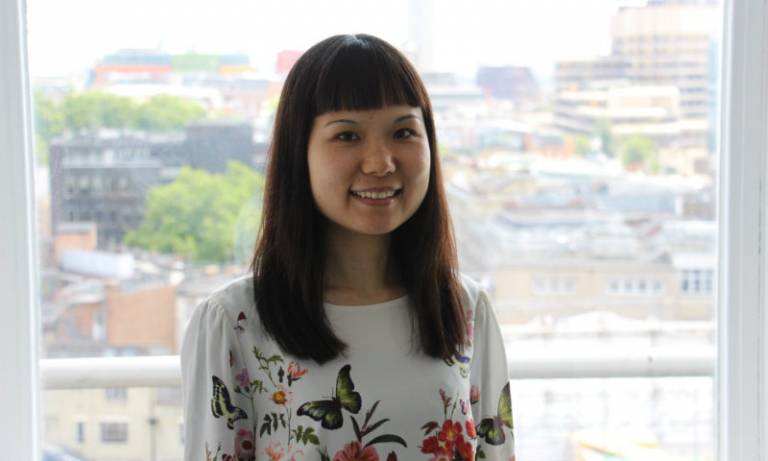Developing my teaching as a Postgraduate Teaching Assistant: Nozomi Sakata
Nozomi Sakata is a Postgraduate Teaching Assistant (PGTA) from the department of Education, Policy and Society in the IOE and gained an Associate Fellowship of the Higher Education Academy.

10 July 2017
Which UCL Arena pathway did you follow, and where did you hear about it?
I led seminars and tutorials for a compulsory undergraduate module in BA Education Studies. I also facilitated a statistics practical for MPhil/PhD students at the IOE, UCL's Faculty of Education and Society.
I participated in the Arena One ‘Teaching Associate Programme’ (TAP), as my colleague who attended the programme last year recommended it.
I became interested because she explained that even though she had been already familiar with some of the education theories discussed (such as active learning and problem-based learning), having the opportunity to practice how to apply them in the TAP sessions and discussing this with other participants had helped her bridge the gap between theory and practice.
What was your motivation?
Though I had taught a variety of age groups before, university-level teaching was new to me.
I hoped to gain effective teaching skills and practical tips on how to teach undergraduate and postgraduate students. I also planned to prepare for the application for Associate Fellowship accredited by the Higher Education Academy (AFHEA).
What was the most useful element?
Each session consists of theories of effective teaching (including assessment, feedback and student support, to mention a few concrete areas), application of the theories and reflection on your own practice.
Because all five sessions were hands-on, I could 'try out' what I learned in the TAP in my actual teaching during and after the term. For instance, after the session on "planning outcome-based learning", I used the class design template we had discussed and arranged my seminars with it.
How has it changed your teaching?
I applied some of the tips to my teaching.
Active learning is one of the key themes discussed in the TAP. I consciously utilise active learning methods with a mix of activities such as peer tutoring, role-play, brainstorming, and crossover groups. As I applied these methods, the students came to talk more, including those who were quiet at the beginning.
Furthermore, to evaluate my teaching, I asked the students to give feedback anonymously in the middle of the term rather than wait until the end.
The evaluations indicated that the students struggled with understanding the broad purpose of the module and were anxious about the assessments. In the next seminar, I clarified to them the module objectives and themes to be covered, as well as what sort of preparation they could do for the assessments.
What would you say to someone considering working towards a UCL Arena/Higher Education Academy Fellowship?
Throughout the course, the TAP programme provided peer support and advice based on the Associate Fellow of the Higher Education Academy (AFHEA0 descriptors.
We had opportunities to write and share case studies for feedback, conduct peer observation, and discuss effective AFHEA applications.
Although developing my own case studies and commenting on others' took quite a bit of time, the constructive feedback I received and the opportunities I had to analyse other people's case studies helped me reflect critically on my own.
I strongly encourage others who are preparing their AFHEA application to attend the specific UCL Arena One workshops (Initial Guidance, Developing your application). Personally, I found that developing my application while attending the TAP course reinforced the Plan-Do-Check-Action cycle of teaching practice.
 Close
Close

